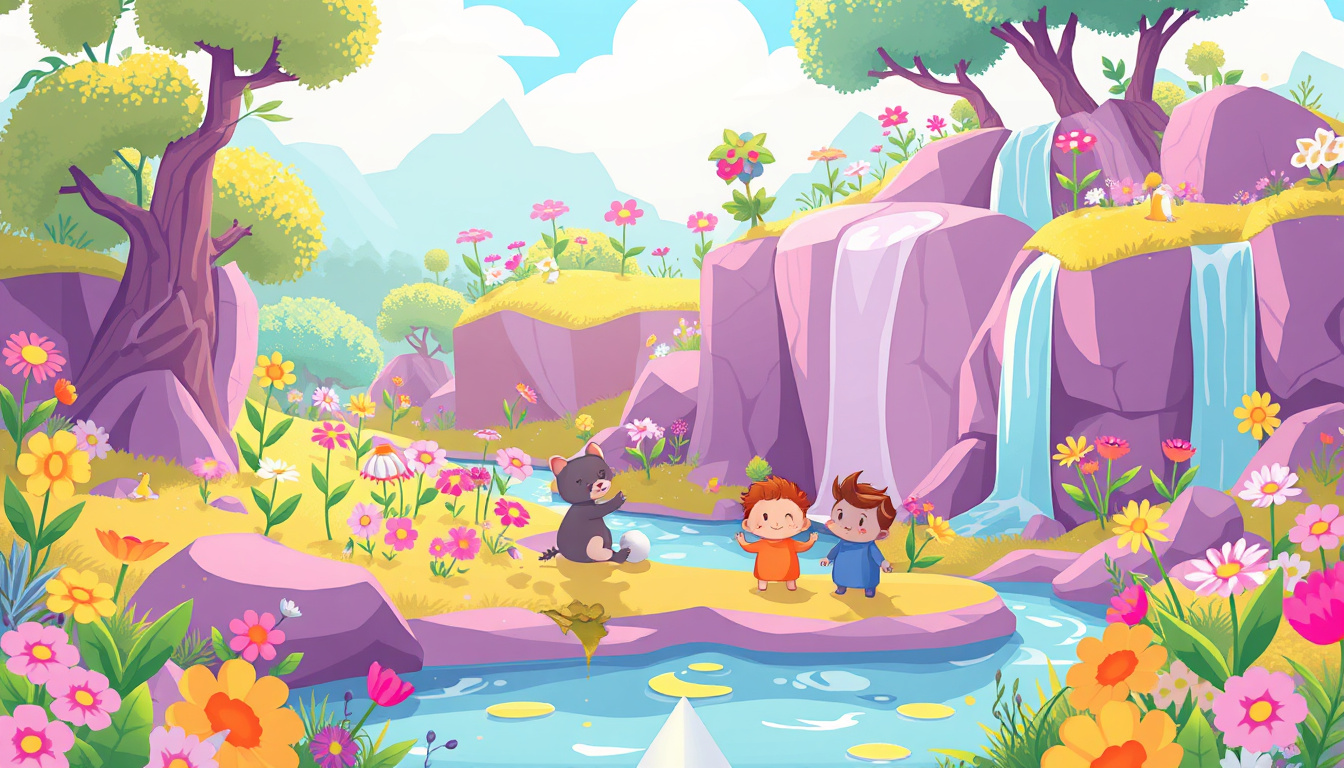Game On: The Indie Video Game That’s Surprisingly About Emotional Healing
In recent years, indie games have carved out a unique niche within the gaming industry, evolving from mere entertainment to powerful platforms for emotional healing. Among these gems lies ‘Game On: The Indie Video Game That’s Surprisingly About Emotional Healing,’ a title that beautifully combines engaging gameplay with profound emotional depth. This article will delve into how this indie phenomenon addresses mental health, inviting players on a journey of self-discovery and healing. From its innovative game mechanics to compelling character arcs, we’ll explore why this game is not just a playthrough but a transformative experience.

Key Takeaways
- Indie games are emerging as a powerful medium for addressing emotional healing.
- The concept of the game revolves around players engaging with their emotions while navigating gameplay.
- Character development allows players to connect deeply with personal struggles and victories.
- Art and sound design play a crucial role in crafting an immersive emotional journey.
- Player testimonials highlight the game’s positive impact on mental well-being and emotional understanding.
Introduction: The Emergence of Indie Games as a Medium for Healing
In recent years, the indie game scene has flourished, introducing innovative titles that extend beyond traditional gameplay and storytelling. One notable arrival on this front is ‘Game On: The Indie Video Game That’s Surprisingly About Emotional Healing.’ This title has grabbed the attention of both gamers and mental health advocates alike, as it cleverly blends interactive entertainment with profound themes of recovery, self-discovery, and emotional resilience. By engaging players in narratives that resonate on a personal level, indie games like ‘Game On’ are not just a source of enjoyment but also serve as important tools for healing. The game’s creative mechanics encourage players to confront their feelings, navigate through experiences of loss, and emerge with a newfound sense of hope, showcasing how video games can transcend mere escapism and promote genuine emotional well-being.
Game Concept: Exploring Emotional Healing Through Gameplay
In the ever-evolving landscape of indie video games, titles that delve into emotional themes are captivating a growing audience, and one standout is ‘Game On: The Indie Video Game That’s Surprisingly About Emotional Healing.’ This innovative game seamlessly blends engaging gameplay with profound narrative elements, creating a unique experience that encourages players to explore their feelings and confront personal challenges. Through its artful design and clever storytelling, players navigate a world that symbolizes their emotional landscapes, encountering obstacles that represent relational, psychological, and trauma-related struggles. As players progress, they are not just striving for victory in the game; they are embarking on a journey towards self-discovery and emotional healing. This aspect sets ‘Game On’ apart from traditional entertainment, inviting gamers to reflect on their experiences while enjoying an immersive gaming environment. With its growing popularity, it is clear that games like ‘Game On’ are redefining the boundaries of video game narratives, proving that gaming can be a powerful medium for emotional exploration and healing.
‘Games are the most elevated form of investigation.’ – Joseph Campbell

Character Development: How Players Relate to Struggles and Triumphs
Character development in video games plays a crucial role in how players engage with the narrative, especially in indie titles like ‘Game On: The Indie Video Game That’s Surprisingly About Emotional Healing.’ This game offers a unique blend of gameplay and storytelling, allowing players to connect deeply with the characters as they navigate their struggles and triumphs. As players guide their characters through various challenges, they are not just completing quests but also experiencing a journey of emotional healing. This connection fosters a sense of empathy and personal investment, making victories feel more rewarding and losses more poignant. It’s this emotional resonance that distinguishes ‘Game On’ from typical gaming experiences, showcasing how modern indie games can address complex themes such as mental health and personal growth. In doing so, it attracts a broader audience seeking not just entertainment, but a narrative that reflects their own struggles, ultimately enhancing the overall gaming experience.
Art and Sound Design: Creating an Immersive Emotional Experience
In the ever-evolving landscape of indie video games, one title that stands out is ‘Game On: The Indie Video Game That’s Surprisingly About Emotional Healing.’ This unique game not only offers engaging gameplay mechanics but also masterfully intertwines art and sound design to foster an immersive emotional experience. The hand-drawn visuals are rich with detail, drawing players into a world where every frame echoes the game’s underlying theme of emotional healing. Coupled with a meticulously crafted sound design, the ambient music and sound effects create a powerful atmosphere that enhances the storytelling experience. As players navigate through challenges and confront their inner struggles, the thoughtful interplay of art and sound guides them on a journey of self-discovery, making ‘Game On’ not just a game, but a transformative experience that resonates long after the console is turned off.

Impact and Reception: Player Testimonials and Critical Acclaim
The impact of ‘Game On: The Indie Video Game That’s Surprisingly About Emotional Healing’ has sparked considerable conversation among both players and critics alike. Testimonials from players highlight its transformative nature; many have shared how the game allowed them to confront personal issues and foster emotional growth in a safe environment. One player noted, ‘I never expected a video game to resonate on such a deep level; it literally changed my perspective on healing and self-acceptance.’ This sentiment has been echoed across various platforms, where players describe their experiences with the game’s unique narrative and interactive mechanics that encourage introspection. From a critical standpoint, the game has received acclaim for its innovative approach to mental health topics, with reviewers praising its stunning visuals and compelling story. The emotional depth presented in ‘Game On’ sets it apart in the indie market, making it not just a game, but a tool for emotional healing that resonates with a broad audience. As more players share their journeys through this groundbreaking title, the conversation around the intersection of gaming and mental health continues to grow, solidifying the game’s place in both the indie scene and the broader dialogue on emotional wellness.
Frequently Asked Questions
What is the main theme of the indie game discussed in the article?
The indie game focuses on emotional healing, using gameplay mechanics and narratives to help players explore and process their feelings and experiences.
How does the gameplay facilitate emotional healing?
The gameplay is designed to allow players to encounter and overcome various emotional challenges, encouraging reflection and personal growth through interactive storytelling and character development.
What makes the characters relatable in this game?
The characters are developed with depth, portraying realistic struggles and triumphs, which enables players to connect with their experiences and emotions on a personal level.
How do art and sound design contribute to the game’s emotional impact?
The art and sound design create an immersive atmosphere that enhances the emotional experience, using visuals and music to evoke feelings and deepen the player’s connection to the narrative.
What has been the players’ response to the game?
Players have reported positive experiences, with many sharing testimonials about how the game has helped them in their own emotional healing journeys, leading to critical acclaim among reviewers.









Post Comment